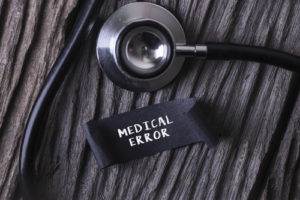
Seven years ago, Ana Pereira was brought to the emergency room at the Monmouth Medical Center in Long Branch, New Jersey. Pereira complained of severe pain in her abdomen. The attending physicians diagnosed her with kidney stones and renal colic, which is when urinary stones block part of the urinary tract. According to a medical malpractice lawsuit, filed on behalf of Pereira, if not for the alleged negligence of doctors and the medical center she would not have lost both of her legs below the knee and her left hand at the wrist.
Lawyers representing Pereira argued that because of a delay in treatment her condition worsened. The day after her arrival, blood cultures allegedly showed a dangerous bacteria growth in her kidney. Doctors quickly operated to drain the fluid, but the first attempt was unsuccessful and the procedure had to be repeated. Pereira, who was 29 at the time, then developed sepsis that allegedly caused her to fall into a coma. According to medical records, she was in a coma for five days and during that time lost circulation to her extremities, leading to the amputations.
At the end of 2016, the Monmouth Medical Center settled with Pereira for $16.5 million. She also received a $2 million settlement from the neurologist and his practice. But the urologist, Dr. Michael Esposito, refused to settle and after years of litigation the lawsuit went to trial. After hearing each sides’ evidence over the course of a month, the New Jersey jury came back with a verdict in favor of Pereira, who is now 36. The jury found Esposito negligent and awarded the plaintiff $24 million in damages in addition to the $18.5 million that she had already received.
Frequently Asked Questions

If you are facing mounting medical bills because of an injury or illness caused by medical malpractice, your best option is to file a lawsuit against the responsible party or parties. You have a good chance of winning a judgment or settlement that includes money for your current and future medical bills, plus compensation for
Read More
Alcohol poisoning – sometimes called alcohol overdose – can be deadly. Without prompt diagnosis and treatment, a person who has too much alcohol in their system can experience a myriad of issues as body functions slow, and can lead to serious problems with vital functions including breathing, heart rate, and body temperature regulation. In most cases,
Read More